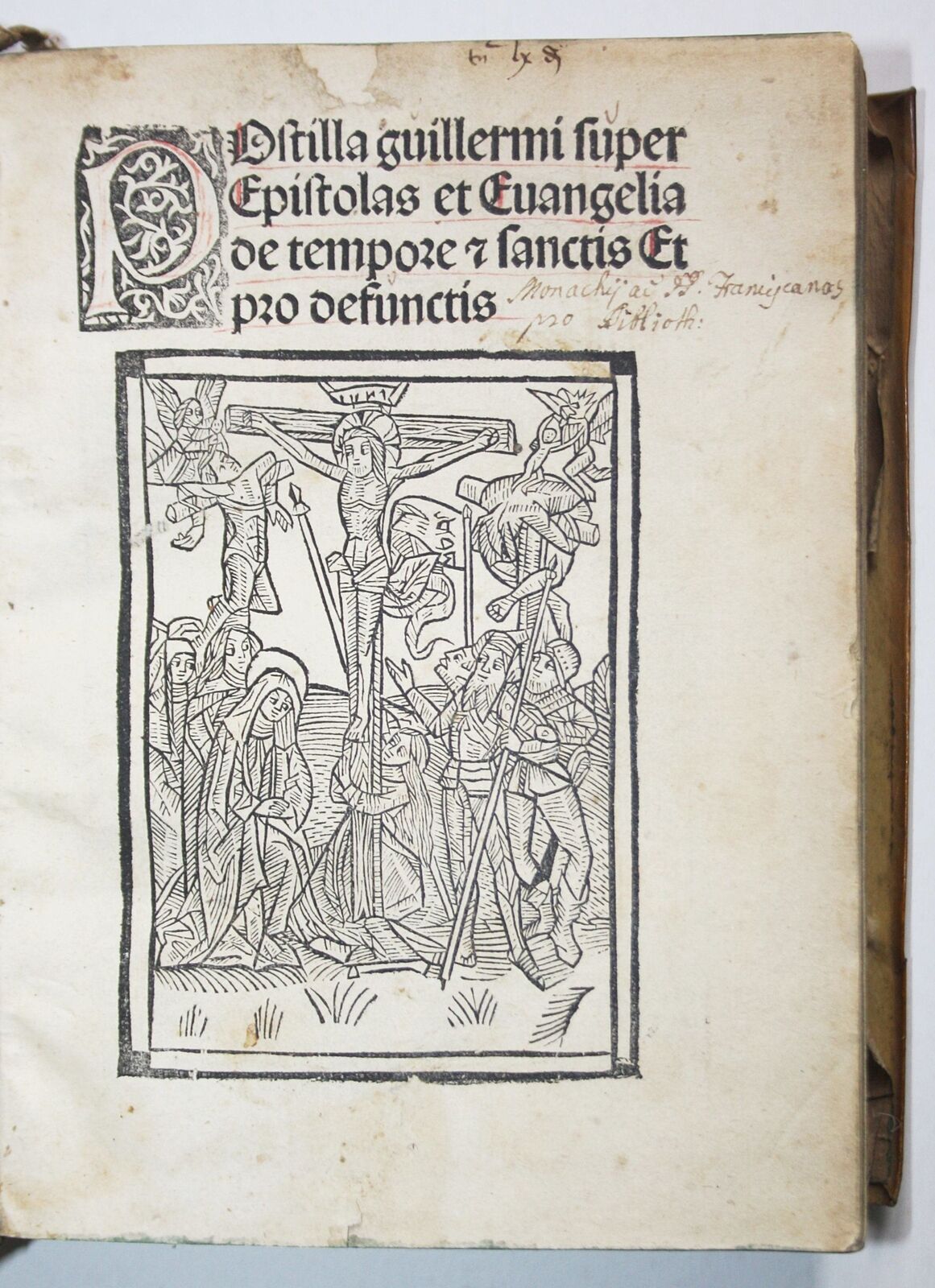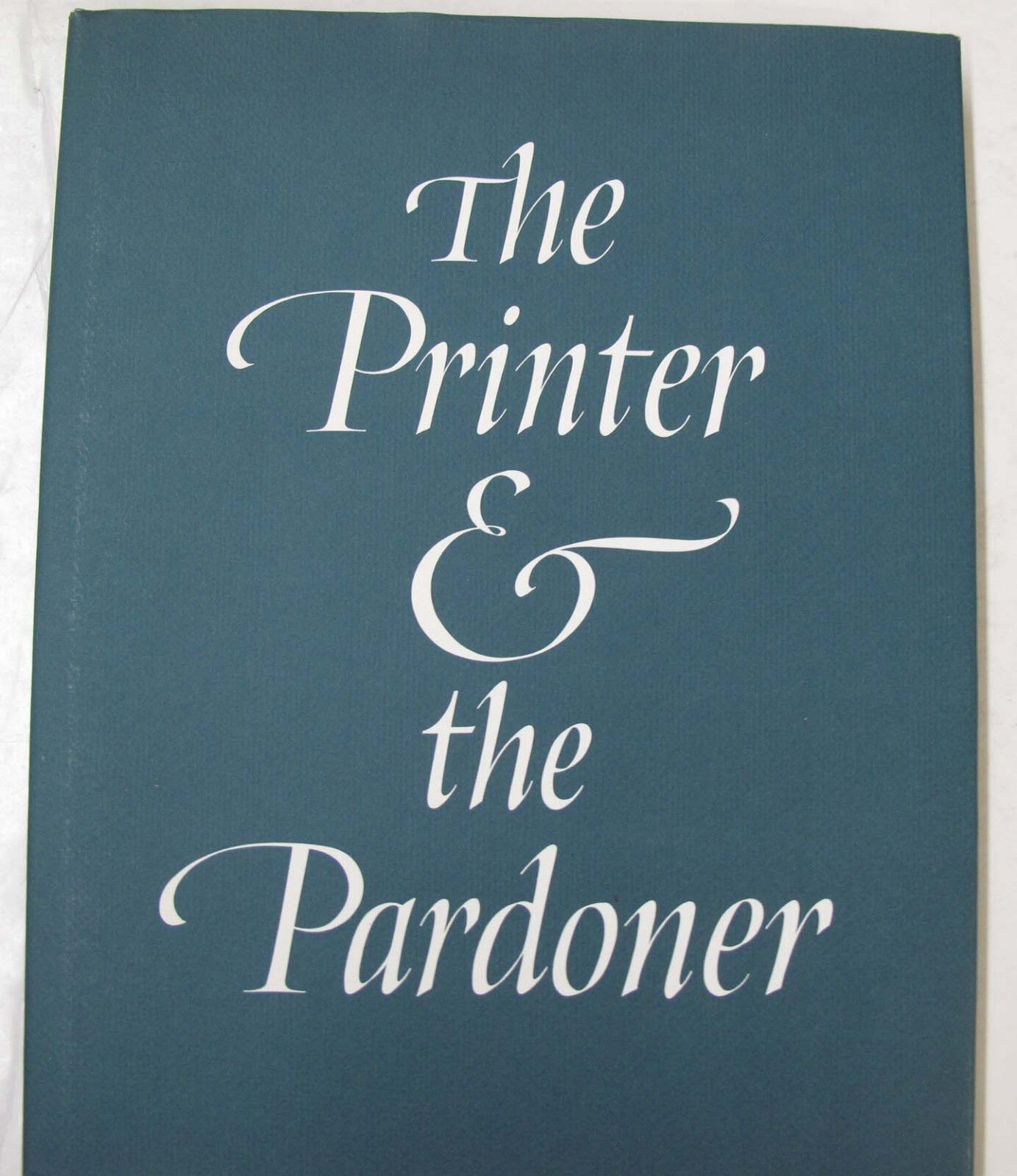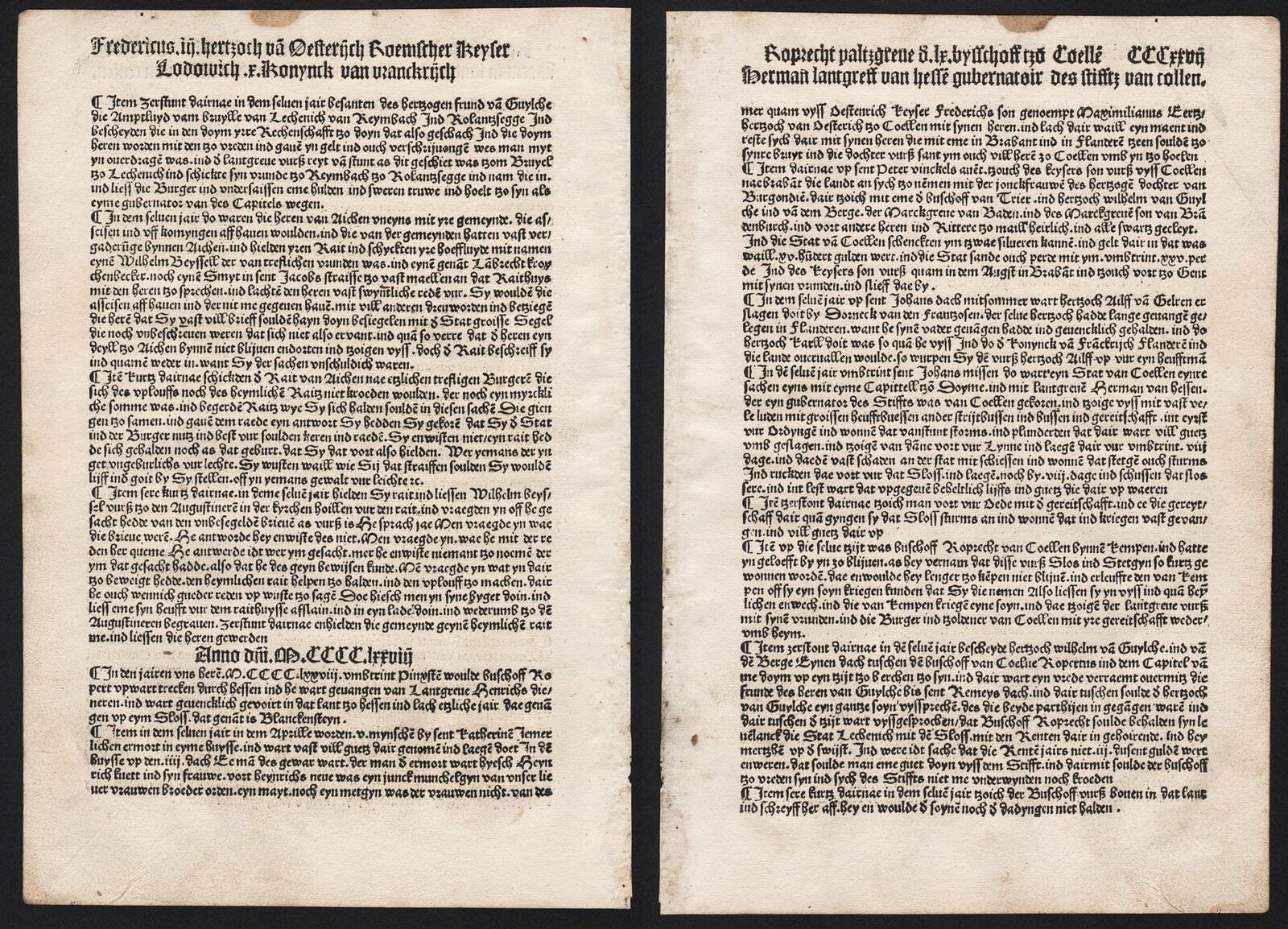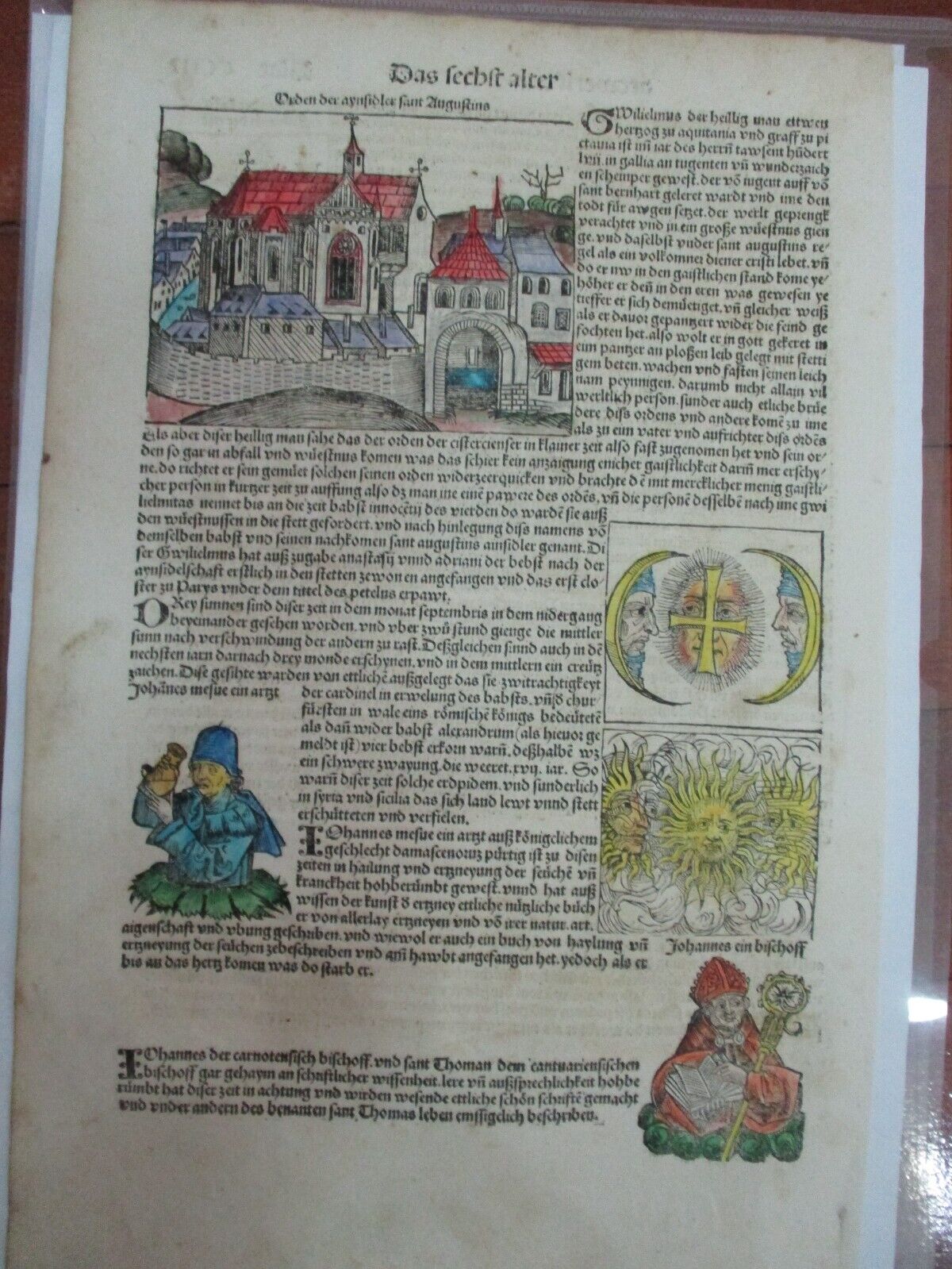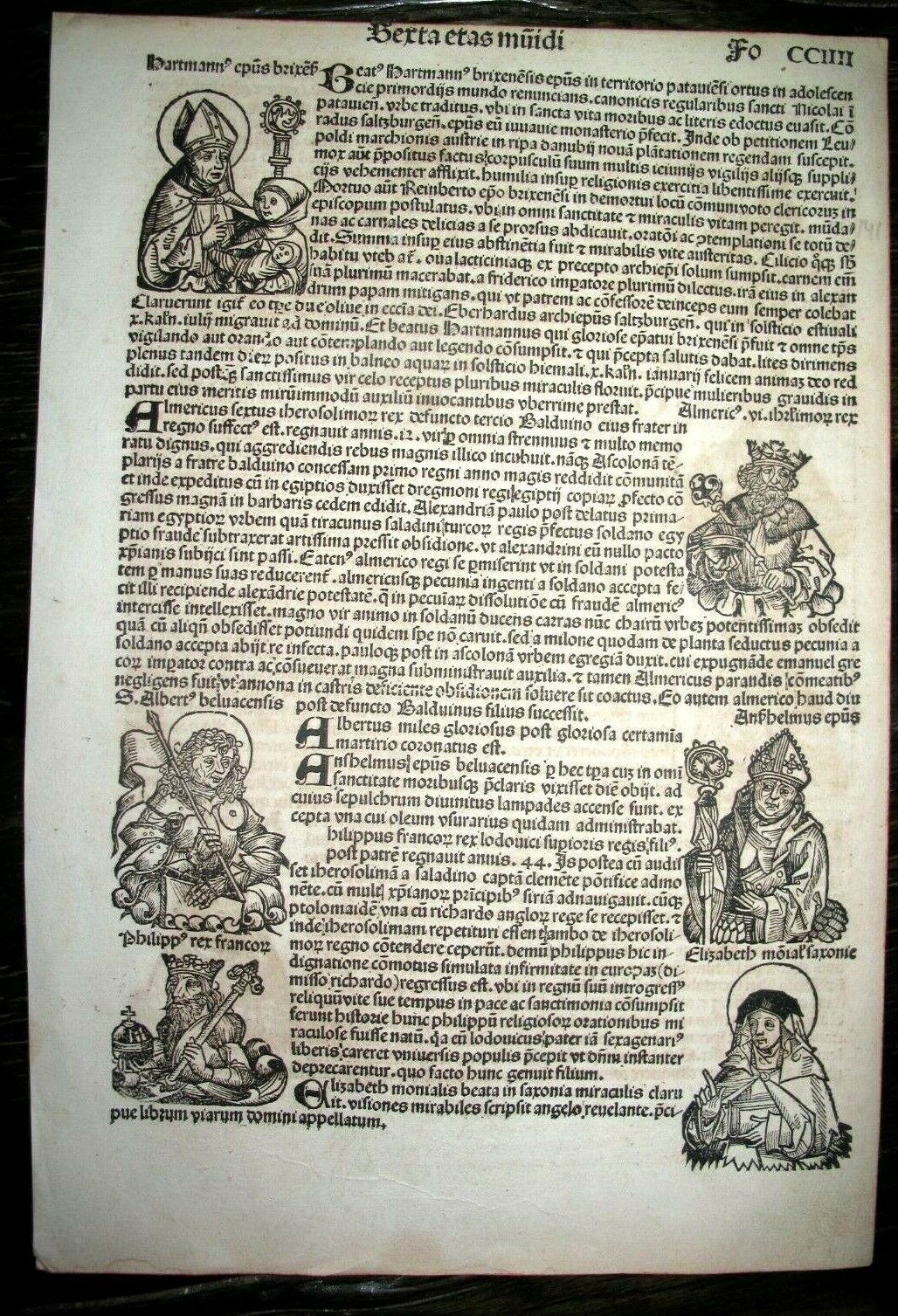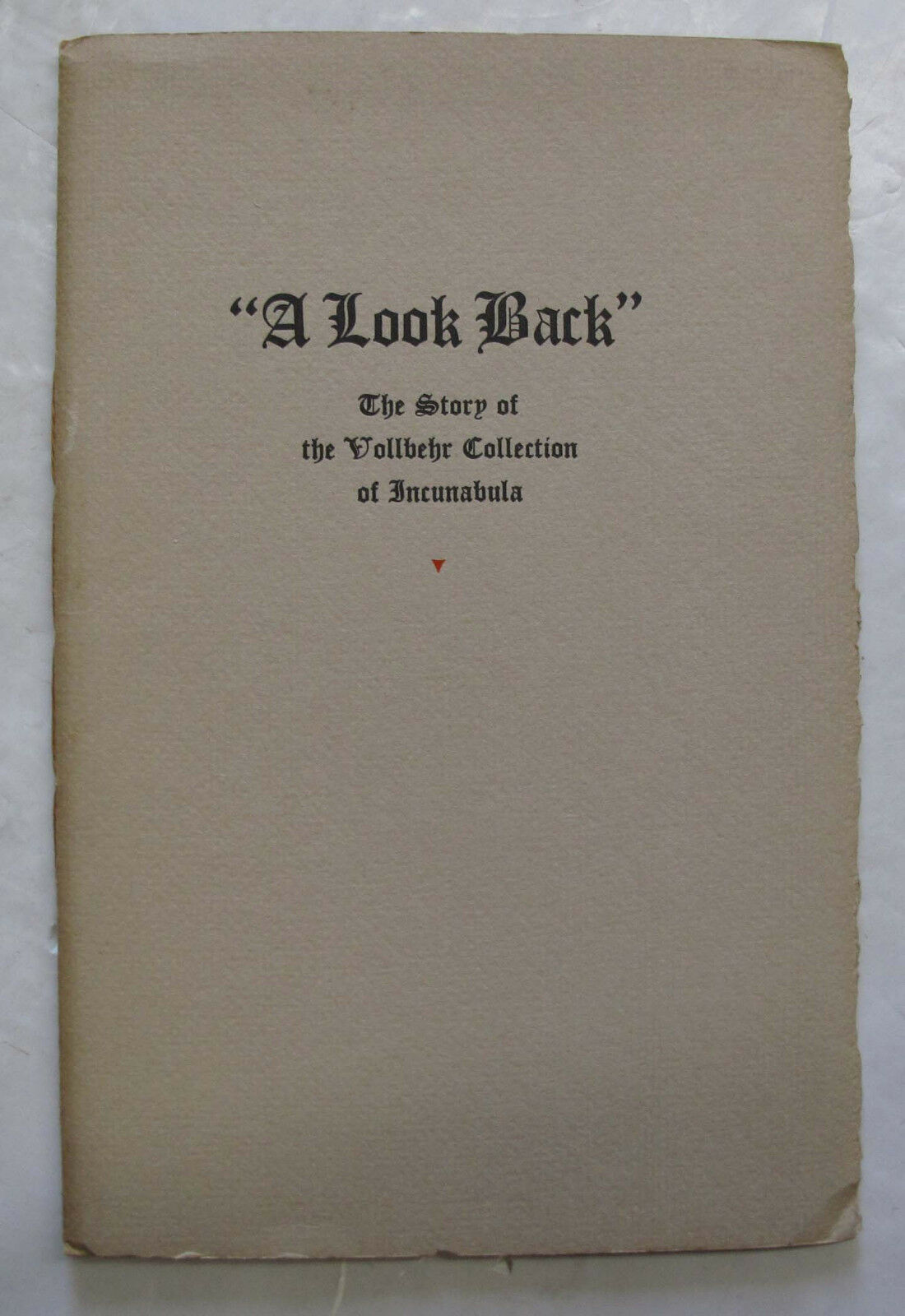-40%
Incunable Inkunabel Guillelmus Parisiensis Augsburg 1494 Woodblock Prints
$ 5166.59
- Description
- Size Guide
Description
Incunable Inkunabel Guillelmus Parisiensis Augsburg 1494 Woodblock PrintsThe description of this item has been automatically translated. If you have any questions, please feel free to contact us.
Many other old maps, graphics and antiquarian books in our ebay shop!
We buy too!
D'Auvergne, Guillaume (also Guillelmus Parisiensis):
Postilla guillermi super Epistolas et Evangelia de tempore et sanctis Et pro desufunctis. Liber Chronicarum / World Chronicle
Augsburg, Johann Schönsperger 1494.
17th century vellum binding [205x155cm]. With Latin text on 2 columns, written in Gothic characters. With a large woodcut showing the scene of the crucifixion on the title page, 53 further text woodcuts. 162 unnumbered leaves: A-A8-M-M8, N-N5, 1 blank, A-A8-G-G6, B-B5. With handwritten contemporary marginal annotations, as well as annotations on the inside front cover and on the last page. Rubricated in red throughout. With an engraved bookplate for Arthur Brölemann (1826-1904) mounted on the inside front cover. Arthur Brölemann together with his father Henry Auguste Brölemann were important collectors of medieval manuscripts in the 19th century. William of Auvergne (1180/90-1249), also known as Guillelmus Parisiensis, Guillaume d'Auvergne, Guilielmus Alvernus, or William of Paris was a French theologian and philosopher, Bishop of Paris (1228-1249) and counselor to young king Louis IX. He was one of the first western European philosophers who engaged with and commented extensively upon Aristotelian writings on metaphysics and natural philosophy, as well as upon Islamic philosophy. The present book offers a richly illustrated guide to excerpts from the Epistles and Evangelists, that were read during church services throughout the year. The text was first issued in 1437 and it has been attributed to Johannes Herolt, a Dominican preacher from 15th century Germany. A fact which proves the importance of the book for its time is that it was published in more than 100 incunabular editions (most of them, however, not illustrated), thus being one of the best-selling books of the medieval times. The woodcuts of the present edition, depicting biblical scenes, are identical to the ones in the 1491 and 1492 Basel editions, and different from the further editions published after 1500. It has been suggested the illustrations were influenced by the Plenarium, published in Strassburg in 1482. Johann Schönsperger (1455-1521) was an Augsburg book printer and publisher. In 1481 he set up a printing shop together with goldsmith Thomas Rüger ( 1483) and worked closely with his stepfather Johann Bämler ( 1503). In 1508 he became the printer of Emperor Maximilian I presumably through Konrad Peutinger's advice. He printed the Theuerdank and the prayer book for the Order of St. George for the Emperor. The letter types for these two projects are milestones in the development of Fraktur. His Bibles (Schönsperger Bibles) of 1487 and 1490 also became famous. In 1497 his printing house published the so-called Kleine Schedel, an abbreviated edition of the Nuremburg Chronicle by Hartmann Schedel. Only 22 copies of this edition are owned by public institutions worldwide, not all of them complete. The other editions, either illustrated or not, are also quite rare. Copies are found, for instance, in the London Victoria and Albert Museum, in Oxford, Prague, Munich, Uppsala. Provenience: From the library of an unnamed Franciscan monastery (16th century handwriting on the title page); with a handwritten dedication note dated 1581 on the inside front cover by Friedrich Geysling to Georg Geyer, of the Franciscan Catholic Order; (The handwritten dedication reads: "Venerabili ad ac Religioso pri fri Georgis Geyers Sacerdoti ordinis S. Francisci, hunc libru perpetuum amicitiae fedus, Friderici Geyßling panchus perghurn [?], dono dedit. Anno Dom. 1581"); Arthur Brölemann collection (1826-1904). GKW 12004; Goff 696; Grove 8286; Pellerin 5676; Schreiber 4151 Digital editions provided by the Munich State Library and the Halle University Library. Title page with small restored tear on the upper edge (with no loss of text or image); a few pages have very small partly restored marginal tears; last section (5 leaves) detached from the book block as well as from the binding, the binding with a tear on the spine and without leather straps. - The pages are however in very good condition. The copy is complete and the text block is in excellent condition.
Order number: 194788
Many more antique maps and prints on our site antiquariat-voelkel.
Many more old maps, views and graphics on our own site antiquariat-voelkel.
illustrations
Taken with whBOOK
Secure ordering - order control checked!
Article posted with the w+h GmbH eBay service
Data and images powered by
book lover
(2022-08-31)
17th century vellum binding [205x155cm]. With Latin text on 2 columns, written in Gothic characters. With a large woodcut showing the scene of the crucifixion on the title page, 53 further text woodcuts. 162 unnumbered leaves: A-A8-M-M8, N-N5, 1 blank, A-A8-G-G6, B-B5. With handwritten contemporary marginal annotations, as well as annotations on the inside front cover and on the last page. Rubricated in red throughout. With an engraved bookplate for Arthur Brölemann (1826-1904) mounted on the inside front cover. Arthur Brölemann together with his father Henry Auguste Brölemann were important collectors of medieval manuscripts in the 19th century. William of Auvergne (1180/90-1249), also known as Guillelmus Parisiensis, Guillaume d'Auvergne, Guilielmus Alvernus, or William of Paris was a Fr
Autor
D'Auvergne, Guillaume (auch Guillelmus Parisiensis)
Genre
Antiquarische Bücher / Inkunabeln / Incunables
Sprache
Lateinisch
Erscheinungsjahr
1494
Verlag
Augsburg, Johann Schönsperger
